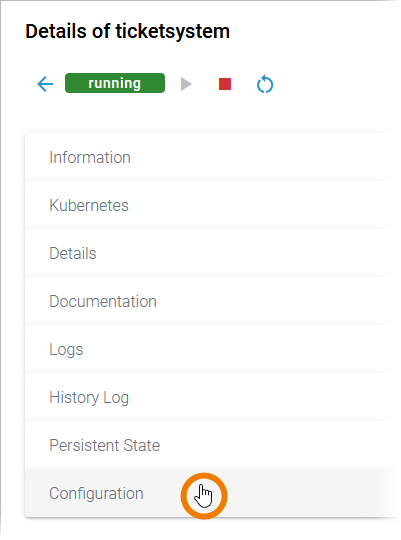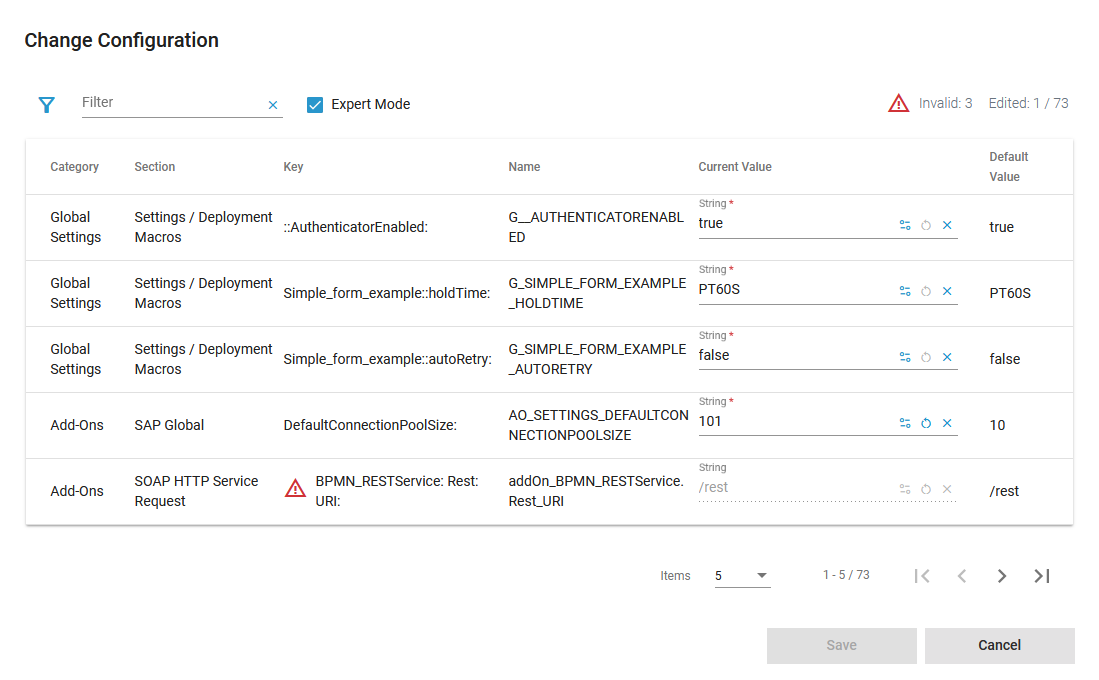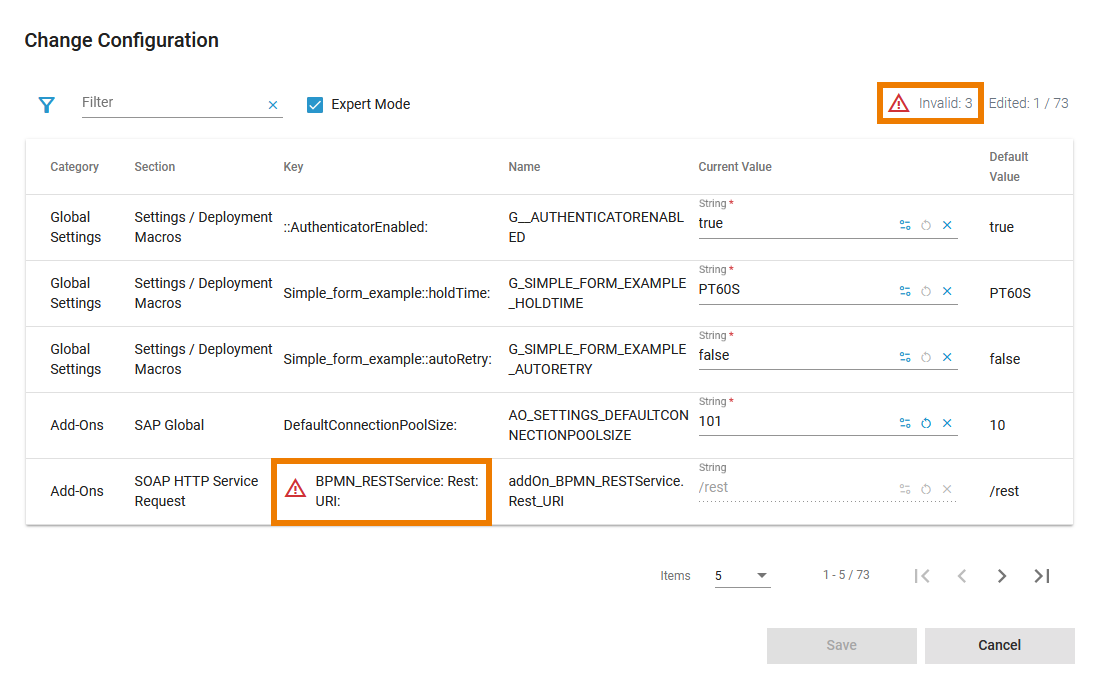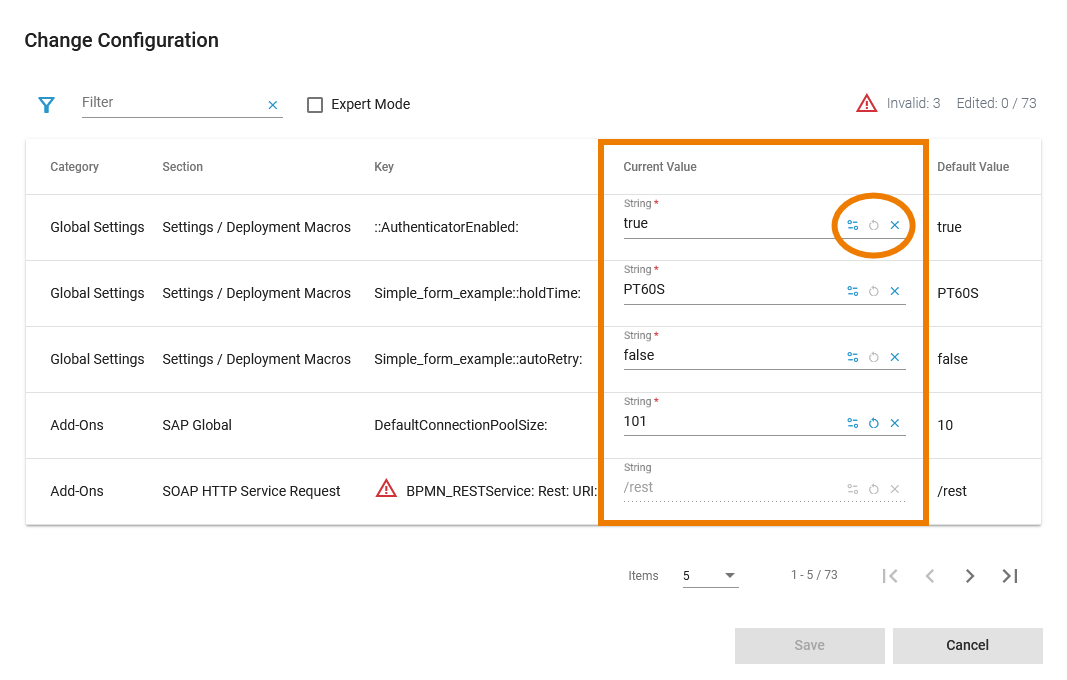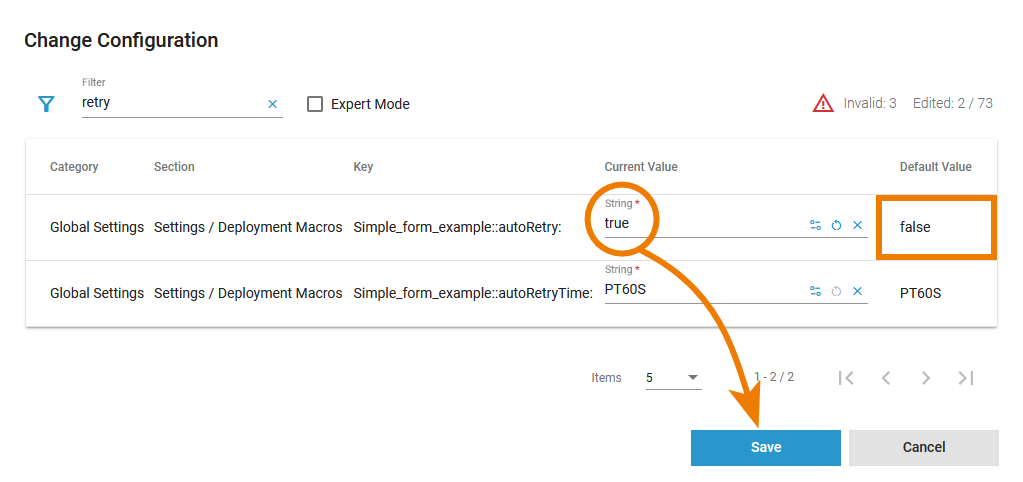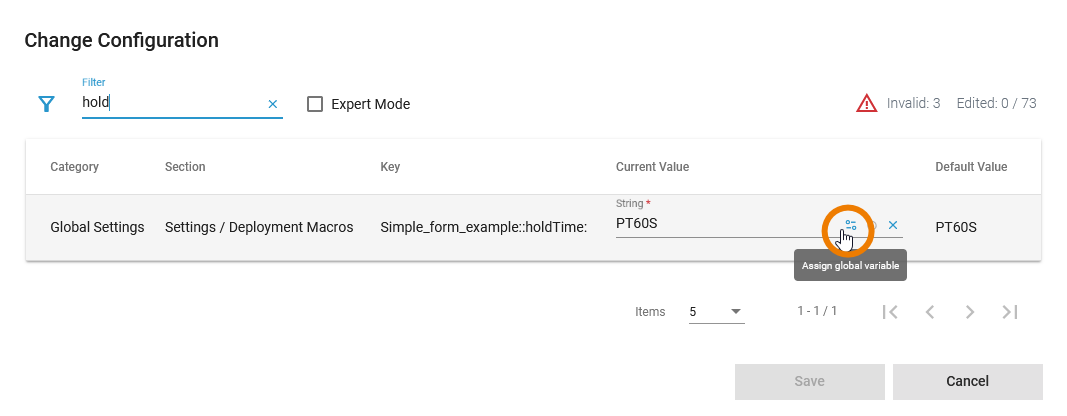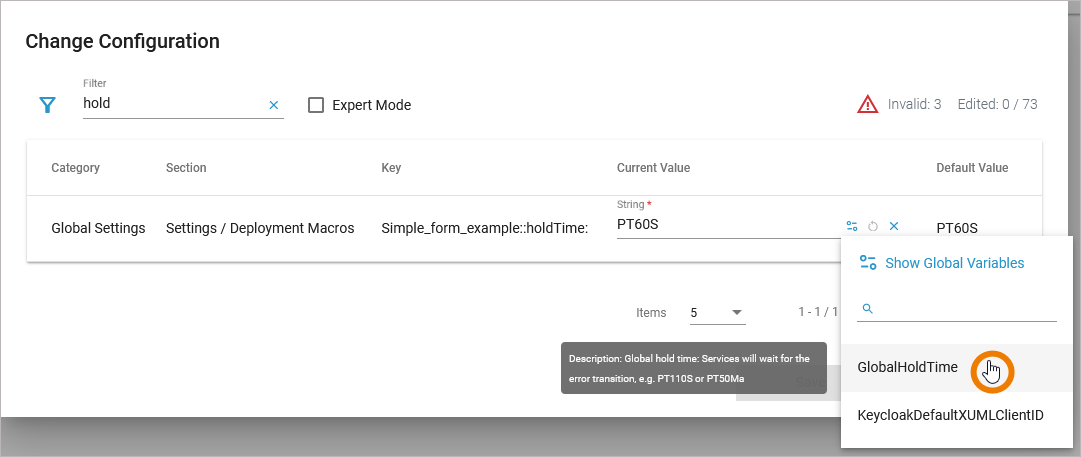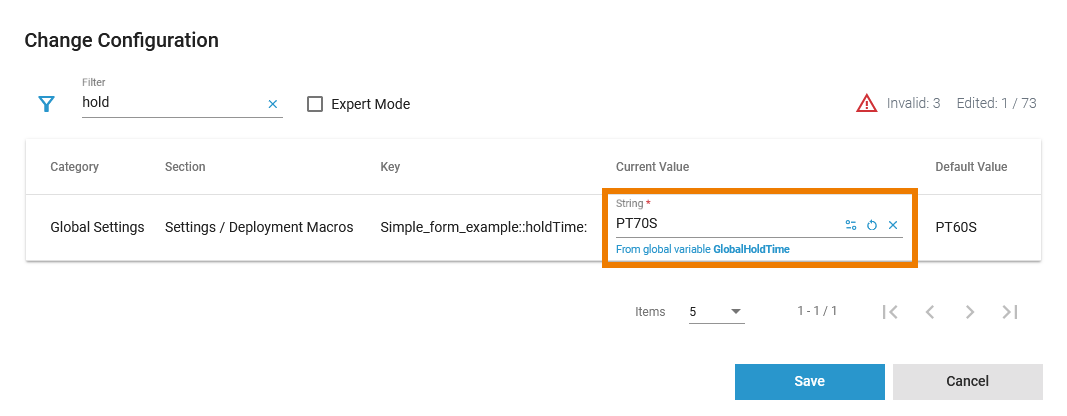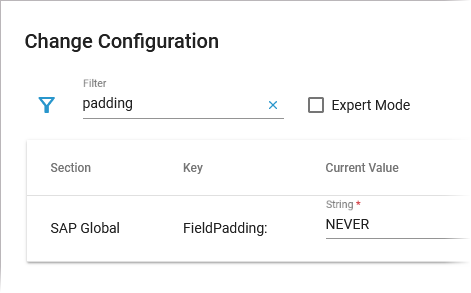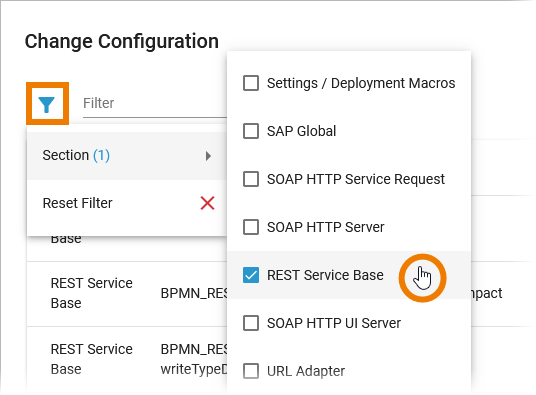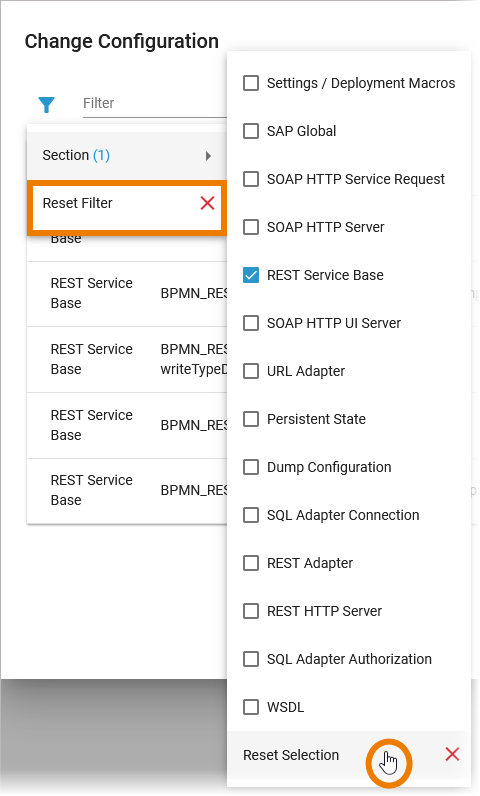| The administration application allows you to change the configuration of a Kubernetes workload. You have two options to open the configuration:
|
|
|
Changing xUML Service Settings
| |||||||||||||
| |||||||||||||
| You can change the Current Value of a service setting: Just overwrite the displayed value. The field offers you three additional options:
| ||||||||||||
|
Assigning a Global Variable
| If you want to use a global variable instead of entering a value manually, click Assign global variable
| |
| A menu opens in which all available global variables are displayed that are of the same type as the current value that you want to change. Hover over a global variable to display its description in a tooltip. Use option Show Global Variables to open the global variables view. It shows all available global variables and their details. You can also create new global variables here (refer to Managing Global Variables for Containerized xUML Services for more information). | |
| Click a global variable in the list to apply its value to the Current Value field. To emphasize that a global variable is used, a corresponding note is displayed. |
Filtering the Settings' List
| |
| |
|
xUML Service Settings
Global Settings
| Settings Group | Setting | Description | Allowed Values | |
|---|---|---|---|---|
| Settings / Deployment Macros | Service Composite | |||
| getCompositeCategory | Value returned by Action Language macro getCompositeCategory(). Initial value of this setting is the category specified in the service details (see Managing the Service Details). | any string | ||
| getCompositeName | Value returned by Action Language macro getCompositeName(). Initial value of this setting is the service name. | any string | ||
| getCompositeVersion | Value returned by Action Language macro getCompositeVersion(). Initial value of this setting is the service version in the service details (see Managing the Service Details). | a version string | ||
PAS Platform | ||||
| KeycloakInstance::clientId | Specify the clientId to use when authenticating the service. Default is keycloak-clientId.
| any string | ||
| KeycloakInstance::clientSecret | Specify the clientSecret associated to the clientId. Default is keycloak-clientSecret.
| any string | ||
| KeycloakAlias:Location:host | Specify the hostname (domain) of the Keycloak SSO system. Default is keycloak-host. | any string | ||
| KeycloakAlias:Location:basePath | Specify the subpath of the Keycloak system. Default is keycloak-basePath. | any string | ||
| KeycloakAlias:Location:port | Specify the port of the Keycloak system. Default cannot be changed. | 8080 | ||
| KeycloakAlias:Location:protocol | Specify the protocol of the Keycloak system. Default cannot be changed. | http | ||
Service | ||||
| <service settings> | In your Designer service, you can define name-value pairs using the setting macro in an implementation. These values can be modified here. | |||
Add-on Settings
SQL Adapter Connection Settings
SQL Adapter Authorization Settings
Other Add-on Settings
Expert Mode
Use the checkbox Expert Mode to display further options:

If you want to set xUML service settings for containerized services from the outside using the xuml-tool, you will need the Name (= friendly Id) as the environment variable. Refer to Integration Platform User's Guide > xUML Runtime Tool for details.
 from the quick actions bar in the services' list.
from the quick actions bar in the services' list.